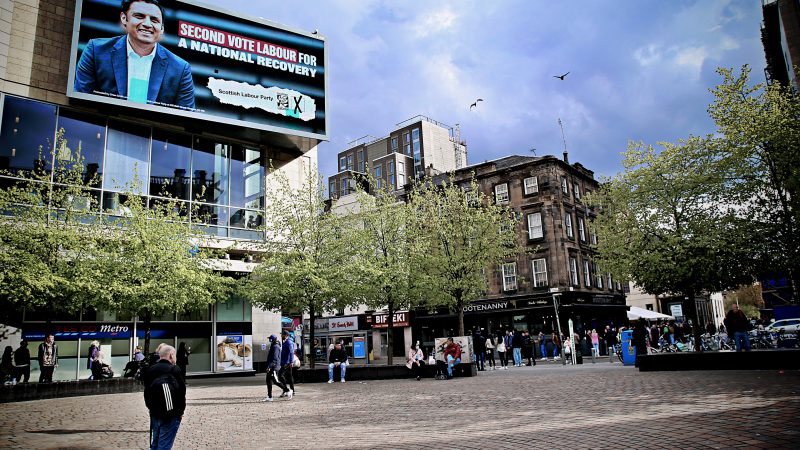
Scotland’s political landscape is experiencing an unexpected tremor – the curious rise in popularity of Nigel Farage’s Reform UK.
But the tectonic plates of Scottish politics have been shifting gradually as voters become slowly disaffected with Scotland’s beleaguered political mainstream. Could the Holyrood by-election in Hamilton, Larkhall and Stonehouse deliver a political earthquake with Scotland’s first-ever Reform UK MSP?
It seems a curious intrusion by a largely England-based party to make a foray north of the border – especially due to the perceived historical distaste Scotland has had of the populist right. But at last year’s general election, 167,979 votes were cast for Reform – 75,294 more than the Scottish Greens. Reform also had some strong third place votes in Aberdeenshire North and Moray East, Airdrie and Shotts, Glenrothes and Mid Fife, Livingston and Rutherglen.
As of 30th May, polling expert Allan Faulds, who runs Ballot Box Scotland, put his current prediction for the Scottish Parliament as SNP 59 seats, Scottish Labour 21 seats, Scottish Conservatives 15 seats, Reform UK 15 seats, Scottish Greens 10 seats and Scottish Lib Dems 9 seats. One Survation poll from 2-5 May puts Reform on 20% on the regional list and 19% in the constituency vote, up from 10% in the regional list and 9% in the constituency in September last year.
Reform’s Scottish Labour defection should surprise no one
This week, Reform even announced a Scottish Labour councillor had defected to it – Renfrewshire’s Jamie McGuire. This might come as a surprise to many LabourList readers. Scotland is often held up as a paragon of progressive politics within the UK.
Perhaps the most surprising reaction is from those who are shocked by Reform’s steady rise in popularity here in Scotland – but when we look at the state of Scottish politics over the last decade, it should shock nobody.
But Reform knows what side their bread is buttered – they waited until the week of a crucial by-election to announce their latest Scottish defections for maximum media impact.
It is not clear that this is a trend we will see across Scotland. Polling appears to show that the rise in Reform’s popularity is due to a collapse in support for the Scottish Conservatives. Whether we like it or not, Scotland is not immune from UK-wide political shifts.
Senior Scottish Labour sources have lamented about Russell’s suitability
Someone who doesn’t appear to be having maximum media impact is Scottish Labour’s candidate in the Hamilton by-election, Davy Russell. In last week’s Sunday Mail, he proclaimed that he would “rather speak to voters than the media” and the party has been doing their due best to ensure he’s accompanied by a responsible adult at all times.
He had a car-crash interview with STV’s political editor Colin MacKay where he refused to say whether he thought the UK Government was right to scrap the winter fuel allowance. Senior Scottish Labour sources have lamented about Russell’s suitability as a candidate.
Conversely, the SNP’s fortunes appear to have improved since the general election. Their Westminster cohort was decimated to just nine MPs last year – a low point in the party’s recent history.
But John Swinney is seen to have steadied the leaky ship and remarkably, it looks like they will take their fifth consecutive Scottish Parliament victory next year. By some small miracle, it looks like they will keep the Hamilton, Stonehouse and Larkhall seat tonight, leaving Labour and Reform to fight it out for second place.
Subscribe here to our daily newsletter roundup of all things Labour – and follow us on Bluesky, WhatsApp, Threads, X or Facebook.
Voters in Scotland are scunnered with the political mainstream. For decades, Scottish political life has been dominated by Labour and the SNP. They have jockeyed for position to be seen as the natural party of government in Scotland. The SNP are eyeing up a third decade in power, despite a litany of perceived failures from their time in government.
Voters tentatively put their trust back in Labour at last year’s general election to eject the Tories, but quickly felt let down after the UK Government scrapped winter fuel allowance for pensioners not in receipt of pension credit. Following Rachel Reeves’ announcement of the policy back in October, support for Labour in Scotland took a nosedive and left Scottish Labour leader Anas Sarwar reassessing his moving plans next May.
Under the SNP, Labour and the Tories watch, our public services have crumbled, the cost of living has continued to rise and wages have stayed stagnant. Is it any wonder Scottish voters are looking beyond the mainstream who have let them down? Reform might not win the by-election, but their ascendancy into Scottish public life is a clear sign of the disillusionment Scottish voters have towards mainstream political parties. This trend serves as a critical warning – not just to Labour – but to all of Scotland’s main political parties.
- SHARE: If you have anything to share that we should be looking into or publishing about this story – or any other topic involving Labour– contact us (strictly anonymously if you wish) at [email protected].
- SUBSCRIBE: Sign up to LabourList’s morning email here for the best briefing on everything Labour, every weekday morning.
- DONATE: If you value our work, please chip in a few pounds a week and become one of our supporters, helping sustain and expand our coverage.
- PARTNER: If you or your organisation might be interested in partnering with us on sponsored events or projects, email [email protected].
- ADVERTISE: If your organisation would like to advertise or run sponsored pieces on LabourList‘s daily newsletter or website, contact our exclusive ad partners Total Politics at [email protected].




More from LabourList
Turning the page? Labour’s recovery in the polls show a path to 2029 victory
Restoration announce recommendations for NEC candidates
‘Factionalism at the top is weakening Labour – and handing a gift to Reform’